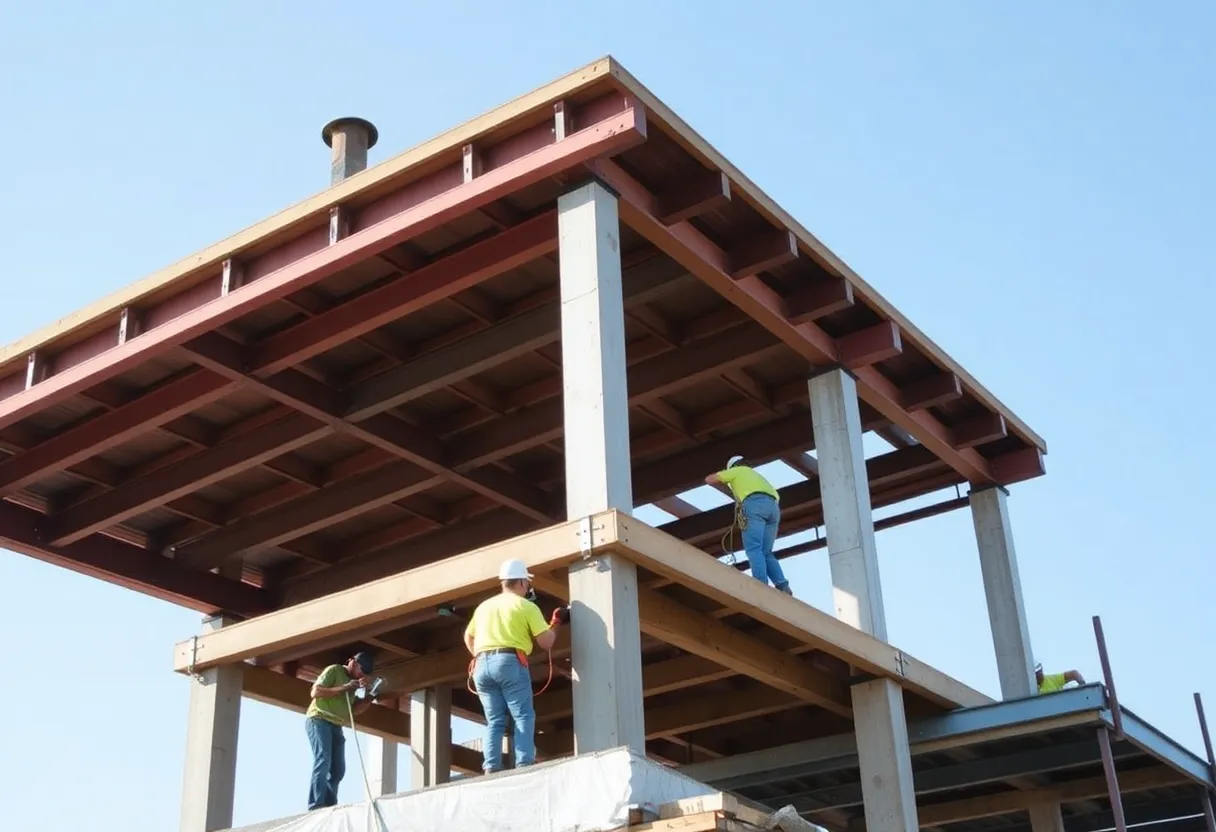News Summary
Intellectual property (IP) is vital in the construction industry, influencing architectural designs, branding, and design tools. Effective IP management is crucial to avoid legal disputes and project delays. The article explores key aspects of IP, including ownership rights, licensing, and common misconceptions around architectural plans and trademarks, emphasizing the importance of clear agreements and legal guidance to navigate IP challenges.
Understanding the Role of Intellectual Property in Construction
Intellectual property (IP) plays a crucial role in the construction industry, significantly impacting areas like architectural designs, plans, branding, and various design tools. Effective management of IP is essential; otherwise, it can lead to legal battles, project delays, and tarnished reputations.
Key Aspects of Intellectual Property
IP encompasses legal rights that protect mental creations, safeguarding intangible assets that include inventions, designs, artistic works, and trademarks. To be enforceable, some types of IP, like patents and registered designs, must go through a formal registration process. In contrast, copyright and moral rights come into effect automatically when qualifying works are produced, assuming they meet relevant legal standards.
A significant point to remember is that IP laws do not cover abstract ideas; they focus on tangible expressions such as written plans and software code. Generally, the creator, whether an individual or organization, retains ownership of the IP created unless an agreement is made for assignment or transfer.
Collaboration and Clarity in IP Ownership
In collaborative construction projects, establishing clear ownership of IP and understanding usage rights is vital. Clear contracts play an essential role, helping to mitigate misunderstandings and disputes regarding IP ownership and usage.
Understanding the difference between licensing (granting permission to use) and assignment (transferring ownership) is critical in managing IP. Once IP is assigned, the original owner forfeits their rights unless a written agreement states otherwise. Licensing terms can differ widely, including exclusive or non-exclusive arrangements and time limitations, so it’s important to document those terms clearly to avoid conflicts.
Background and Foreground IP
Another essential distinction in this area is between background IP and foreground IP. Background IP refers to pre-existing tools or knowledge utilized before a project’s commencement, like proprietary software from consultants. Foreground IP, however, pertains to new intellectual property generated during a project. Clearly defining these types in contracts is imperative.
Common Misunderstandings in IP Rights
Construction firms often face challenges related to the incorrect assumption of ownership of architectural plans. Clients may mistakenly believe that payment for services grants them ownership of related IP rights. Under copyright law, the original creator maintains copyright unless explicitly transferred in writing, opening up potential issues of copyright infringement if permission is not secured.
Moral rights, which include the right to attribution and the right to integrity, cannot be assigned and exist independently of copyright. This means that respecting the moral right of recognition is essential in the creative processes involved in construction.
Trademark Considerations in Construction
Branding is another critical aspect that relies on effective IP management. Trademark concerns are pertinent; using a name or logo already registered by another entity can lead to infringement issues. Therefore, it is crucial to establish ownership agreements and usage terms for branding or trademarks developed during construction projects in advance.
Managing IP for Success in Construction
To manage IP effectively in the construction sector, contracts must clearly define what constitutes background and foreground IP. It is a common misconception that payment for services equates to IP ownership, a misunderstanding that can result in significant legal problems.
Protecting branding through trademark registration is advisable, along with performing checks to prevent conflicts with existing names or logos. Moreover, respect for moral rights is necessary, and waivers should only be obtained with informed consent.
Lastly, a proactive approach to managing IP can help avert costly disputes and preserve valuable assets. An in-depth understanding of the various types of IP, knowing the distinctions between licensing and assignment, and clarifying ownership are all critical elements in ensuring the success of construction projects. Seeking legal guidance is recommended to navigate these complex IP challenges effectively.
Deeper Dive: News & Info About This Topic
Additional Resources
- Holding Redlich: Understanding Intellectual Property in the Construction Industry
- ConstructConnect: Legal Notes on Intellectual Property in Construction
- Autodesk: Blueprint for Trusted AI in Construction
- Wikipedia: Intellectual Property
- Google Search: Intellectual Property in Construction
Author: Construction FL News
The FLORIDA STAFF WRITER represents the experienced team at constructionflnews.com, your go-to source for actionable local news and information in Florida and beyond. Specializing in "news you can use," we cover essential topics like product reviews for personal and business needs, local business directories, politics, real estate trends, neighborhood insights, and state news affecting the area—with deep expertise drawn from years of dedicated reporting and strong community input, including local press releases and business updates. We deliver top reporting on high-value events such as the Florida Build Expo, major infrastructure projects, and advancements in construction technology showcases. Our coverage extends to key organizations like the Associated Builders and Contractors of Florida and the Florida Home Builders Association, plus leading businesses in construction and legal services that power the local economy such as CMiC Global and Shutts & Bowen LLP. As part of the broader network, including constructioncanews.com, constructionnynews.com, and constructiontxnews.com, we provide comprehensive, credible insights into the dynamic construction landscape across multiple states.





